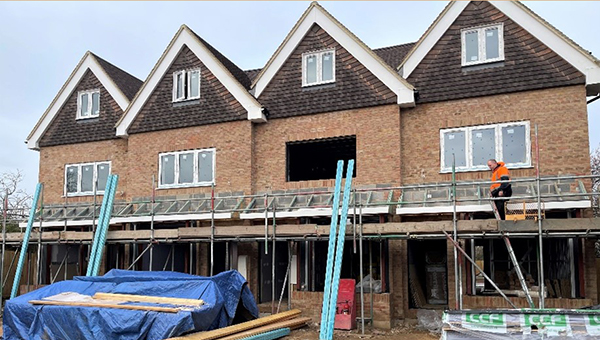Fiduciam continues to support small house builders across the United Kingdom with development funding. The latest project to approach completion is a seven-house development in Taplow.
Fiduciam provided a flexible multi-drawdown facility that enabled the borrower to repay early if sales were strong while providing the security of a longer-term loan. The interest rate is a competitive 0.74% per month. Interest was retained for the initial part of the 24-month term.

The scheme has been well received by the market and multiple units are already under offer. Since Fiduciam and the borrower agreed to release amounts in advance, the borrower benefits from the certainty of knowing the proportion of sales proceeds that will be retained by Fiduciam and how much will be available for financing their next projects. Fiduciam expects the first sales to complete within the next two months.
Louisa Willoughby, Case Manager at Fiduciam, comments:
“Over the last year, Fiduciam has expanded its product offering targeted at small housebuilders. We have funded a variety of ground up projects for experienced developers across the United Kingdom, typically between 3 and 12 units. The Taplow project benefits from an excellent location and easy access to Crossrail. Its appeal to young families and commuters is confirmed by the sales already under way.”
Marc Morris, Underwriter at Fiduciam, adds:
“We are keen to develop close long-term relationships with borrowers such as the developer of the Taplow project. While new technological tools and platforms enhance our ability to gather and interpret information, and enable us to mitigate credit risk, they are no replacement for previous collaboration. From the borrower’s perspective, our knowledge of their business allows us to offer better terms that are more tailored to their requirements. For example, we often seek to help repeat borrowers transfer equity from one project to the next and thus accelerate the project cycle. We are also happy to discuss projects at an early stage, and to provide visibility on financing options.”



















